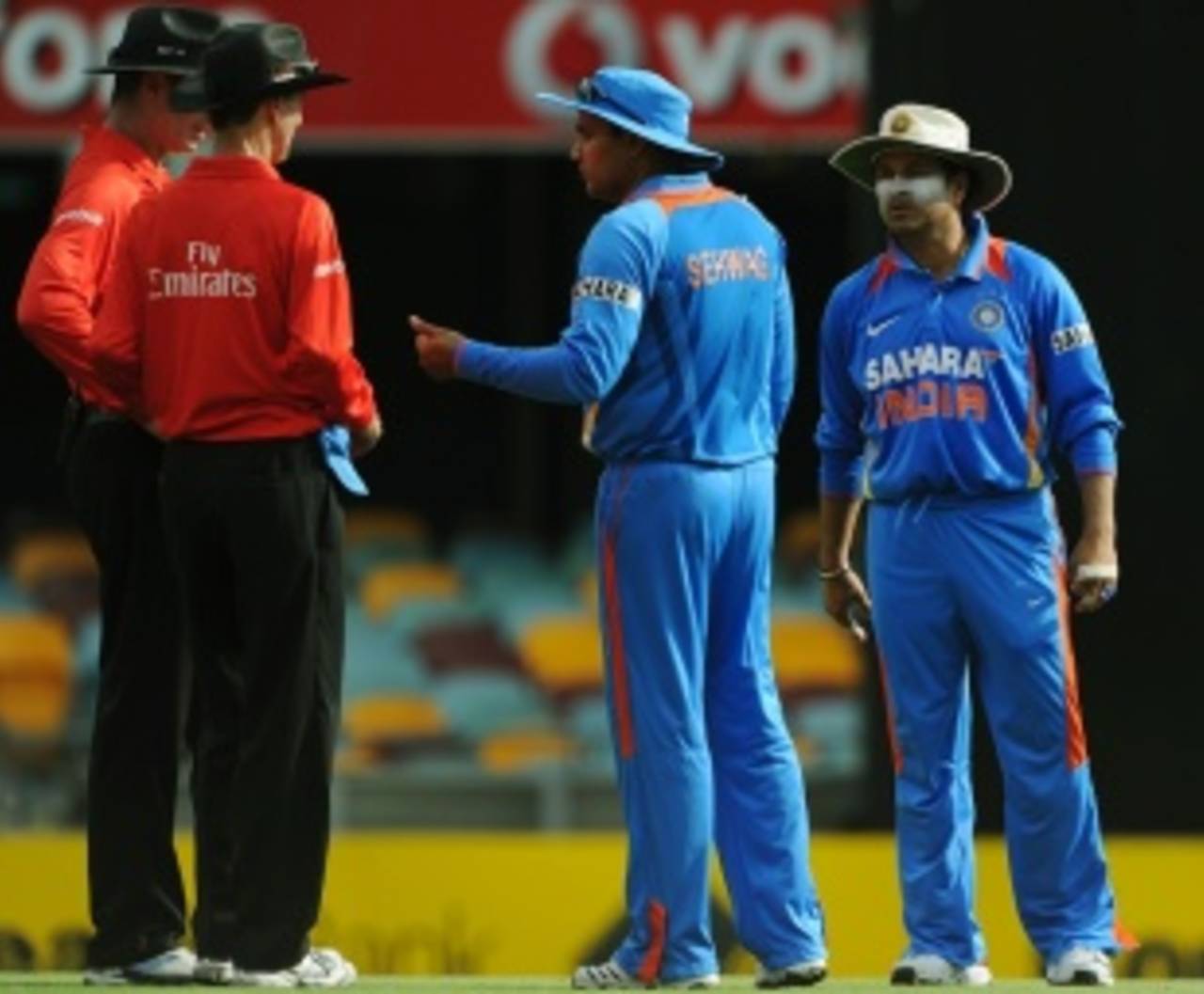The incident involving Lahiru Thirimanne and the almost-'Mankad' run-out by R Ashwin provides the perfect platform for an intellectual debate about the difference between gamesmanship and sportsmanship in an ancient game that has almost outgrown its antiquated value system.
India's withdrawal of the appeal speaks volumes of the maturity shown by Virender Sehwag and Sachin Tendulkar even in the heat of battle. Their cool-headed wisdom, coupled with sensible umpiring, avoided creating an incident that would inevitably have polarised two close neighbours and would almost certainly have led to bad blood that would have lingered on for some time. Well done India.
It does beg the philosophical question though that at what point does a team or individual cross that fine line between being villain or hero, opportunist or cheat, playing to the rules as opposed to playing within the rules?
If Thirimanne had been given out in that circumstance, there would almost certainly have been a hue and cry about India's disregard for a very traditional act of sportsmanship. If it had indeed been carelessness on the batsman's part, it would have seen the Indians cast as villains. Clearly though, Thirimanne was either prone to carelessness on a grand scale or he was deliberately trying to steal an unfair advantage. If it was the latter, who would then be cast as the new villain or hero in this soap opera?
Look at it another way. Most run-outs are decided by a few centimetres so if Thirimanne's actions were deliberate, do we applaud him for getting away with it or do we vilify him for deliberately taking an unfair liberty? After all, a bowler needs to be only a fraction over the line and he cops the indignity of a free-hit. How is that different from a batsman deliberately stealing a few precious inches?
Would it be such a dastardly act if India stuck to their appeal, if they genuinely felt that Thirimanne had been warned and was still oblivious to the fact that he was continually out of his ground? Why was Thirimanne still doing it? Genuine naivete or was he trading on the notion that he could get away with it because the repercussions of a 'Mankad' would have been too much of a PR disaster for India?
Cricket has this duality of morality issue that is yet unresolved across so many issues. If it is okay for a batsman to intentionally back up too far so he can avoid being run out on a sharp single, is it also okay for a fielder to touch the rope with his feet (so long as he can get away with it)? Generally speaking, that is frowned upon if the fielder knew the truth. It is considered poor form to not signal a boundary if your body even grazed the rope so why is it not equally poor form to back up to the extent we saw yesterday?
Why do we still have a debate about whether batsmen should walk when they nick one to the wicketkeeper? Is honesty the key value at stake - if you know you nicked it and choose to stand your ground, why is it so different to claiming a catch that may have just bounced in front of you? What about someone who appeals for a catch that he clearly knows is not out - is that acceptable because it's upto the umpire to spot the mistake? What essentially is the difference between that and confessing to the umpire that the ball hasn't carried or has touched the boundary rope?
How did cricket come to this situation where we place different premiums on different aspects of truth and honesty? Clearly, some truths are more valued than others, a curious ethical conundrum if ever there was one.
It might indeed be a good thing for the sport if Thirimanne is made aware that his penchant to go walkabout, whether by accident or by design, is bound to end in tears soon. The next time he does it, he probably won't even need to be warned. He has already enjoyed that privilege. Perhaps the lad is genuinely unaware of just how much of an advantage he is 'accidentally' gaining but if he starts making a habit of it, he will create an international incident that could be avoided. Only he knows whether his repeated infringements on Tuesday were deliberate or accidental - we'll never know the real truth.
On the matter of truth and Indians, perhaps it is fitting that we quote one of the greatest Indians of all time. His wisdom may well put cricket's curious double standards, when it comes to different types of integrity, into focus.
"Truth stands even if there be no public support. It is self-sustained. Truth is by nature self-evident. As soon as you remove the cobwebs of ignorance that surround it, it shines clear," - Mahatma Gandhi.
Michael Jeh is an Oxford Blue who played first-class cricket, and a Playing Member of the MCC. He lives in Brisbane
